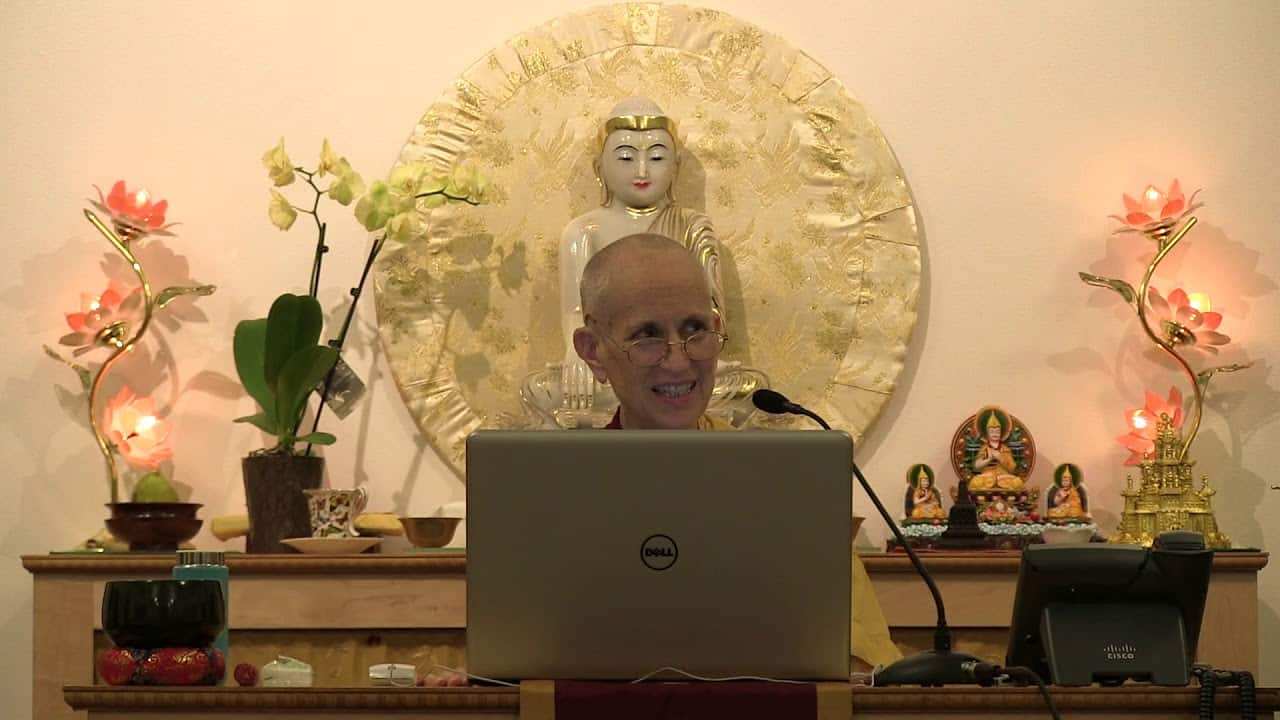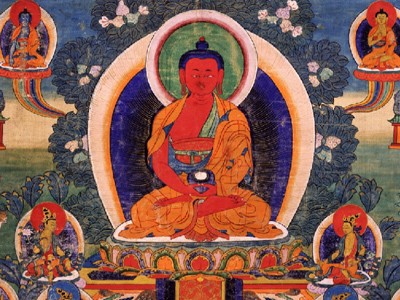From serenity to the jhanas
The text turns to training the mind on the stages of the path of advanced level practitioners. Part of a series of teachings on the Gomchen Lamrim by Gomchen Ngawang Drakpa. Visit Gomchen Lamrim Study Guide for a full list of contemplation points for the series.
- The signs of attaining serenity
- Different kinds of bliss
- Four afflictions that can interfere with maintaining calm-abiding
- Realms of existence and spheres of consciousness
- The superknowledges and how to develop them
Gomchen Lamrim 122: From Serenity to the Jhanas (download)
Contemplation points
- Consider some of the advantages of developing serenity: the body and mind become very flexible and serviceable, physical and mental pliancy arise quickly making the body and mind cooperative, the mind is spacious and can abide firmly and steadily on the meditation object so that even a loud sound doesn’t distract you, you have a feeling of great clarity and although afflictions arise in post meditation time they are not as strong, sleep can easily be transformed into meditation, and meditation can be used as a form of protection. What might it mean for your practice on and off the cushion to experience these advantages? How might these advantages help you to benefit others?
- Consider the four afflictions that can interfere with serenity: attachment, arrogance, ignorance, and wrong views. What is meant by attachment in this context? Why are each of these afflictions in particular considered such a hindrance to serenity?
- Consider the five super-knowledges: supernormal powers, the divine ear, understanding the minds of others, recollection of past lives, the divine eye, and the destruction of pollutants. In Buddhism, these are not ends in and of themselves, but attained in order to benefit sentient beings. How might each of these super-knowledges be of use to a practitioner on the bodhisattva path?
- Imagine being able to remember all your past lives. Why would that lead to feelings of deep renunciation and the determination to be free from samsara? Why would seeing others’ past lives lead to compassion?
- Better understanding the many benefits of cultivating meditative stability, resolve to begin cultivating this perfection in your meditation sessions.
Venerable Thubten Chodron
Venerable Chodron emphasizes the practical application of Buddha’s teachings in our daily lives and is especially skilled at explaining them in ways easily understood and practiced by Westerners. She is well known for her warm, humorous, and lucid teachings. She was ordained as a Buddhist nun in 1977 by Kyabje Ling Rinpoche in Dharamsala, India, and in 1986 she received bhikshuni (full) ordination in Taiwan. Read her full bio.


